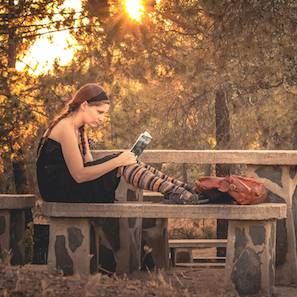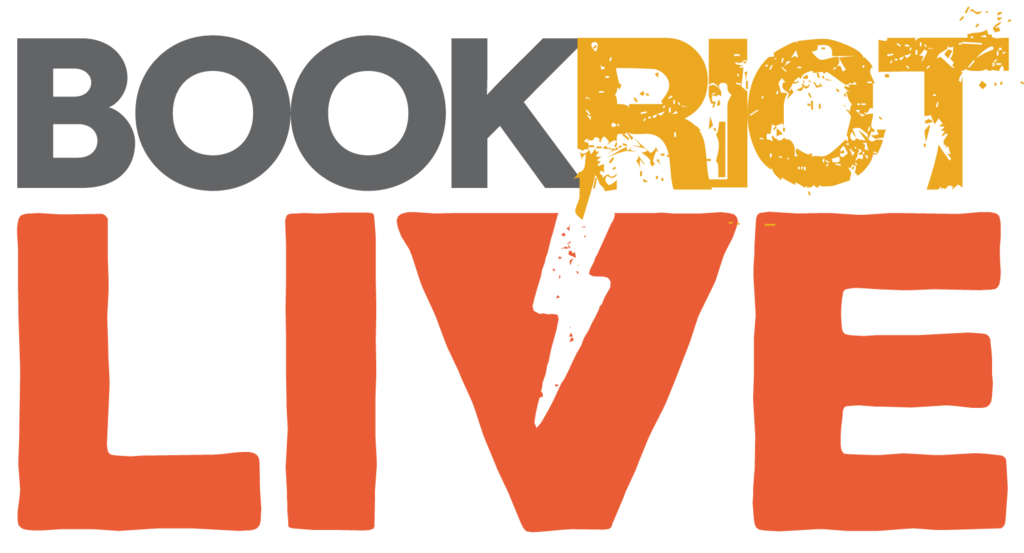
Pour Some Sugar on Me (But Don’t Tell My Mom): Why We Shouldn’t Sugarcoat YA
This is a guest post from Delilah S. Dawson. Delilah is a writer, a geek, an artist, an adventure junky, and a coffee and cupcake connoisseur. She writes books for young adults and mostly-adults that range from whimsical to dark to sexy to horrific to adventuresome. Her latest novel, HIT, is a YA thriller where, in order to save her mother, a teenage girl is forced to become an indentured assassin. Follow her on Twitter @DelilahSDawson.
____________________
I can pinpoint the exact moment of my awkward sexual awakening. I was 13, innocently sitting in the middle school library with a book I’d picked up at the used bookstore. It was The Valley of Horses, and soon I was slumped down, the faded paperback hidden by a math book, learning about strange new things like orgasms, foreskins, and how to tame wild horses. Even though my mom had given me the first book in the series, Clan of the Cave Bear, I knew that what I was reading was forbidden. When she asked to borrow it, I told her I had lost it.
That was a lie. I still have it.
I just didn’t want her to know that I’d read about… those things. Just like I didn’t want her to know I had “borrowed” her copies of Pet Sematary, IT, Carrie, and Silence of the Lambs. I was drawn to sex and violence, whether because they were forbidden or because no one in my family ever discussed them.
I was looking for answers, and I found them in books.
When my mom got her period, she woke up in a pool of blood and thought she was dying. When I got my period, I opened Are You There, God? It’s Me, Margaret to the dogeared page and calmly asked for pads. When my daughter gets her period, I hope that she’ll be well prepared by our frank discussions, and if not, I suspect she’ll turn to Google.
That’s one of the biggest differences between the generation of the authors writing YA and the actual young adults we’re hoping to reach. We sought answers in books, while they can pull up a search engine on their phone. And what they’re going to see online is far, far more graphic and aggressive than what we try to show with caring and understanding in our stories. “How to Kiss” has 280,000,000+ hits on Google, and depending on which one a teen clicks, they could get something clinical, something raunchy, something by skeevy pick-up artists, or something from Cosmopolitan about putting a donut on your boyfriend’s wang. I’d much rather my daughter read a book in which the teen heroine’s feelings are explored— not just How to Kiss, but Why. In a book, the reader has a mainline to the character’s worry, excitement, tension, physical reaction, hopes, disappointments, and the way she’ll lay in bed that night, fingertips to her lips, amazed at what has happened. That’s the magic of books: they allow us to see through someone else’s eyes, feel their feelings, and compare notes afterward.
Teens are by nature egocentric, and books help them build empathy by showing the full story behind sex… and violence. TV, Tumblr, and even sidebar ads make it impossible for teens to remain ignorant of large-scale and small-scale violence. When I was a kid, we had tornado drills. Now we have school shooting protocols. We have kids struggling to understand the school massacres in Kenya and Peshawar. When I was writing HIT, it was important to me to follow Patsy’s violent scenes with realistic reactions—shaking, vomiting, regret, self-doubt, guilt, and nightmares. In order to serve the reader, violence in YA must have a meaning, a message. It’s not there for shock value; it’s there for understanding and insight.
Even on a smaller scale, kids face unspoken violence every day, and they deserve to see that reality in books, along with coping and healing. When I was raped in high school, I would’ve given anything for a book that helped me recover, physically and emotionally. Books about bullying, domestic abuse, eating disorders, cutting, depression, suicide, gangs, drugs, drinking—these things affect teens every day, whether we want them to or not. Banning books or sugarcoating their message won’t change that. What it will do is invalidate kids’ experiences and open the door to distrust. But in writing about sex and violence realistically, we can help guide the discussion in healthy directions and start conversations that might otherwise feel forbidden. By saying, “It’s okay to talk about this,” we give teens permission to acknowledge what they’re going through and to enlist us as allies.
We’re saying, “You’re not alone.” We’re saying, “I see you, and I believe you.”
When we make sex and violence forbidden, and when we sugarcoat them in our stories or dumb them down for teen readers, we stop the conversation before it can start, thereby denying kids the realities they face and denying ourselves the chance to instruct, guide, correct misconceptions, and provide comfort. And really, isn’t that the entire point of parenthood? Isn’t the point of books to touch on the love, suffering, and redemption that connect us all?
When my daughter is ready, The Valley of Horses will be there for her.
And so will I.
____________________












